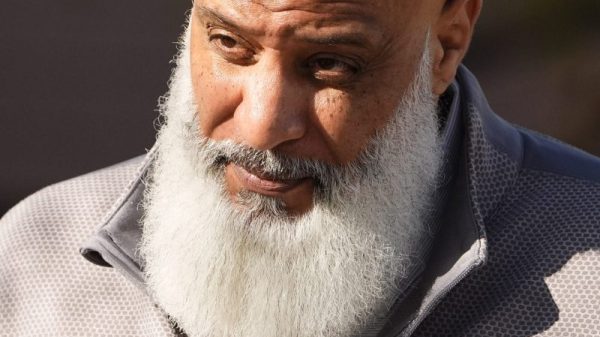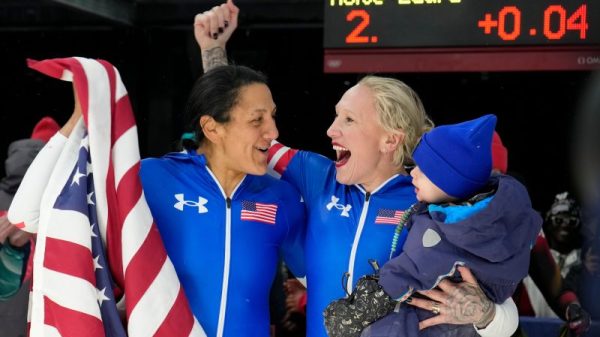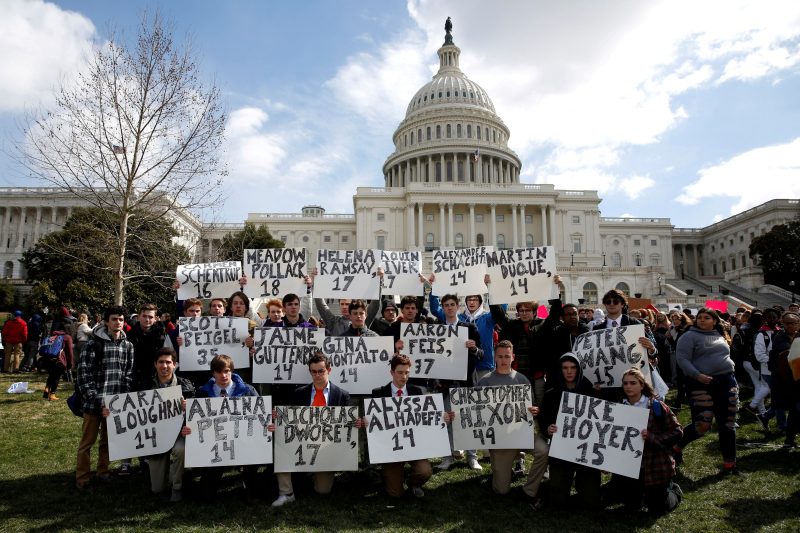I am a member of Generation X, the group of Americans born immediately after the baby boom ended in 1964. The name comes from the novel “Generation X: Tales for an Accelerated Culture” by Douglas Coupland, an exploration of a group of young Americans who demonstrated the insouciance and skepticism of their elders that remains a stereotype for our age cohort.
That name only emerged later. A few other names were tried out first, things like “baby busters” or “posties,” both of which predicate our identity on the generation that preceded us. Eventually “Gen X” stuck. When the millennial generation (those that followed us) emerged, the same process unfolded. For a while, they were called “Gen Y,” as in “the generation after Gen X.” But “millennials” carried the day, a reference to the oldest of them being young adults when the millennium arrived — and of having grown up in the midst of the changes that overlapped with the new millennium, like the internet.
“Gen Y” stuck around long enough to inspire the name “Gen Z,” the generation that came afterward. Gen X, Gen Y, Gen Z. But, unlike the forced anonymity of “X” or the transition implied by “millennial,” “Z” doesn’t mean anything. It’s not the last generation, happily. It’s just still in that period of transition from having a nickname to having a real name.
Some real names have been attempted, like the “Homeland Generation” (a nod to 9/11) or MTV’s “the Founders” (a nod to … no idea). But there is a fitting alternative that has gained traction in recent years: the “lockdown generation.”
It’s time to make it formal. No more “Gen Z.” Now: “lockdown.”
Before I make the case for this particular name, let’s address the question of generational boundaries broadly.
Most discussions of generations use the boundaries established by the Pew Research Center for the simple reason that it established some. I’ve spoken with its team and it has good reasons to draw the lines where it does, but there’s nothing hard and fast about Gen X ending in 1980, for example. It’s just where the team drew the line. (The baby boom is the exception; the surge of births that accompanied the boom is demographically distinct. The boom is the only generation recognized by the Census Bureau.)
We use these groupings mostly because it is convenient and it is fun. It’s useful to be able to refer to people born in the 1980s and 1990s as “millennials” instead of constantly referring to them as “people born in the 1980s and 1990s.” It’s fun to argue about the characteristics of generations the way we argue about horoscopes. But this isn’t particularly rigorous. There’s nothing preventing us from simply agreeing that we should rename “Gen Z” something more evocative.
Each of the other generations identified by Pew has a name that derives from something specific to the generation’s cohort. The “silent” generation is so named as a reflection of its modest size, being drowned out by the more populous boomers, whose generational name has an obvious root. As mentioned above, “X” and “millennial” are evocative of those generations.
So what defines “Z”? If you ask members of the generation, they’ll often mention gun violence and school shootings. In fact, the first time I heard the term “lockdown generation” was in 2021 when I was interviewing Melissa Deckman, then a political science professor at Washington College. (She now runs PRRI.) Her work focused on activism among members of Gen Z.
“What’s interesting about Gen Z, especially Gen Z women — their formative socialization experiences, they’re not just growing up in the Trump era, but it’s growing up as a lockdown generation,” she told me. “They have lived these gun drills. For many of the young women I’ve spoken with, especially the highly active ones, being involved after Parkland, the March for Our Lives, almost all of them participated in and organized that. That introduced them to what political organizing was.”
This wasn’t her term, specifically. It had been adopted as part of the activism around gun control that arose following the school shooting in Parkland, Fla., in 2018. But it also predates that. One of the earlier uses of it in this context came in a 2013 Atlantic article responding to the mass killing at the Navy Yard in D.C.
“Mass shootings are a common enough threat these days that we routinely prepare our most vulnerable citizens — school-aged children — with ‘lockdown drills,’ which are now mandated in many states,” Sarah Goodyear wrote. “If you’re under 25, you may have experienced these yourself.”
That was probably true, particularly in the context of schools. The Washington Post has tallied the school shootings that followed the attack at Columbine High School in Colorado in 1999. From 1999 to 2017, the country was averaging about 11 school shootings a year. Since, we’re averaging more than 30. The incidents aren’t widespread, but they are common, triggering states to implement mandatory drills of the sort referred to by Goodyear. Where I live, in New York, the mandate for lockdown drills in schools was implemented in 2016. Other states had them previously.
You’ll notice that the chart above overlaps another defining lockdown: the coronavirus pandemic.
In December 2021, the Associated Press released the results of a poll conducted in partnership with MTV evaluating the effects of the pandemic closures on Americans. The generational group that expressed the most strain on relationships and pursuing a career or education was Gen Z. The year in which there were the fewest school shootings in the past seven years was 2020 — because many schools were closed due to the pandemic.
If we use Pew’s year boundaries for the generation, you see how their lives have overlapped with these traumatic incidents. Columbine occurred before most were born, but the shooting at Sandy Hook Elementary in Newtown, Conn., in 2012 happened when many members of the generation were themselves in elementary school. The Parkland shooting happened when many of them were in high school. The pandemic hit when most of them were in school or in college.
It is a generation that has consistently been locked down. To the extent that when Michigan State University locked down for an actual shooter this week, multiple students who sought shelter had been present for school shootings previously. One had been at Sandy Hook.
The name fits. It’s evocative of the period in a way that “Homeland” no longer really is. So we turn to a practical consideration: What do we call them?
The answer is simple. We call baby boomers “boomers.” We call members of Gen X “members of Gen X.” We call millennials “millennials.” We can call members of the lockdown generation “lockdowners” or “members of the lockdown generation.” That latter isn’t as punchy as “millennials,” but neither is “members of Gen Z.”
In the wake of the shooting at Michigan State, Rep. Maxwell Frost (D-Fla.), the first member of this generation to be elected to Congress, suggested a new name for his cohort.
.@MaxwellFrostFL on MSNBC: ‘Gen Z is the ‘mass shooting generation’ https://t.co/Bd540wQHJj
— Max Steele (@maxasteele) February 15, 2023
Allow me to propose a more concise alternative.



























